
there's two endings, leon, stop lying.

there's two endings, leon, stop lying.


That would be the Lone Wolf oneKill Everything playthougth
Megan and Leonard in multiple intreview mentioned how a lone wolf playthough will be possible.

The Outer Worlds team talks Microsoft acquisition, Fallout influences, and RPG choice
The Outer Worlds aims to be a boundless RPG, putting player choice front and center.
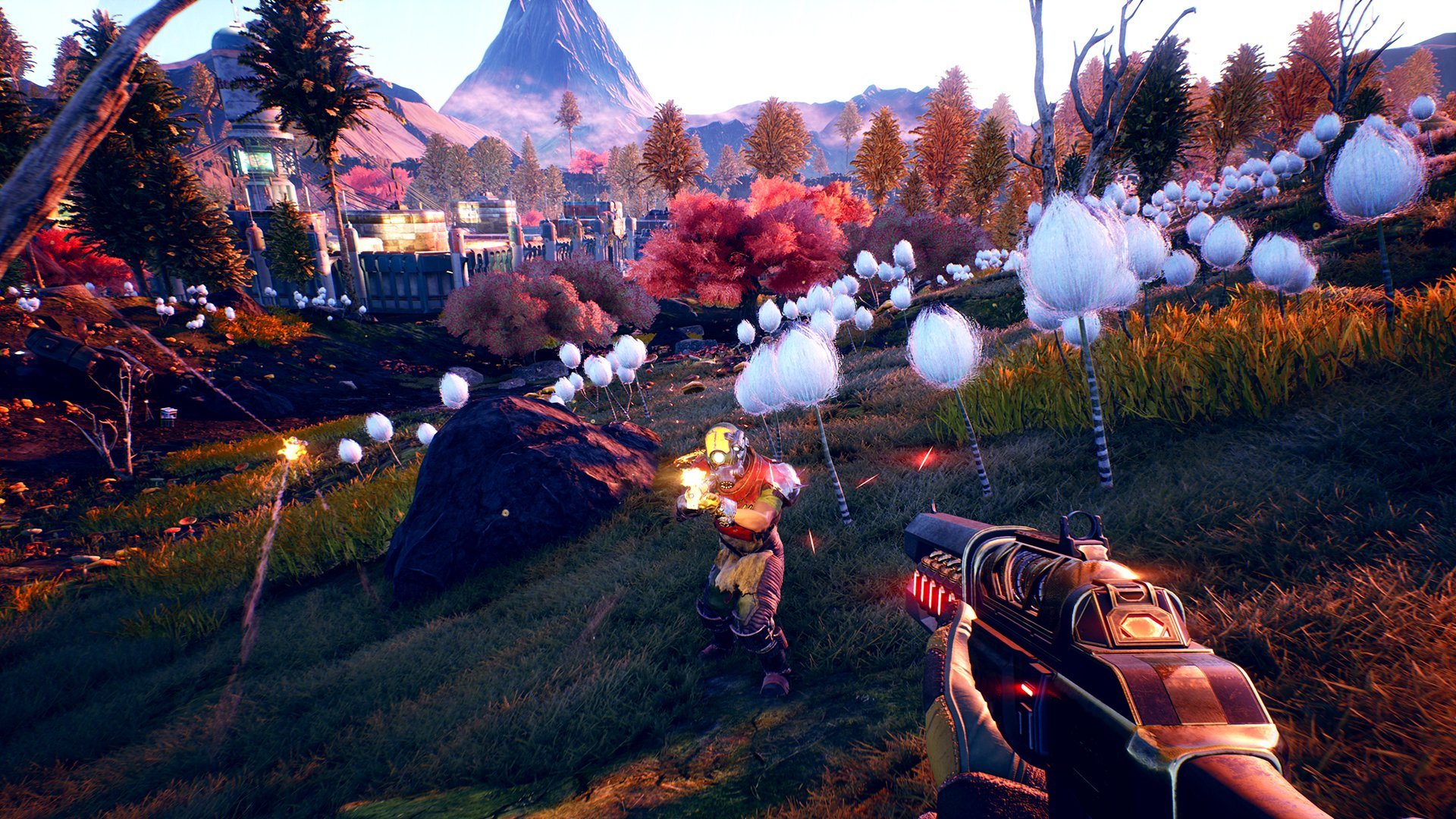
With intergalactic conglomerates and kingpins, the hyper-corporatist Halcyon colony is rife with distrust and conspiracy. It's the canvas for the upcoming role-playing game (RPG) The Outer Worlds, a return to sci-fi roots for Obsidian Entertainment, famed for Star Wars Knights of the Old Republic II and Fallout: New Vegas. While a welcome return to exploration and action, this fresh endeavor also takes player freedom to the next level.
From its ambitious RPG unveiling to its recent acquisition by Microsoft, it's been a busy year for Obsidian. We caught up with the studio at E3 2019 for a glimpse at the journey so far, and what lies ahead.
In The Outer Worlds, choice is the recipe for success
Choice lays at the heart of The Outer Worlds, helping define its deep role-playing systems. Crafting your alternate identity is intrinsic to the genre, and where Obsidian looks to build a world with player freedom and tangible consequences. Complex and intertwined systems pave these underpinnings, with opportunities to fork its narrative throughout the game.
Our demo kicked off with a glimpse of Fallbrook, a wild town host to smugglers and opportunist crooks. Tasked with infiltrating a "boarst" factory, we confront the founder of the twisted facility breeding mutated "cystipig" meat. Events unfold in response to your actions, with character interactions and choices skewing the quest's outcome. We sat down with Dan McPhee, narrative designer on The Outer Worlds, to expand on the scale of player impact and how the scale of decisions will vary.
"[It's] a tangled nest of options and reactivity. The payoff is you get to do whatever you want."
"We have a wide range," McPhee said. "Everything we put in the game is based on someone asking somewhere, 'What if the player can do X, Y, and Z?' We have the small things like quests, who you can take with you. You can change your options on any given quest. And then we have larger, overarching things. There are factions in the game, and they butt heads. And then you can choose sides, or you can try to get them to work together, or you can play them off each other. If you pursue the quest lines that those factions are involved with, it eventually becomes this massive, dramatic struggle."
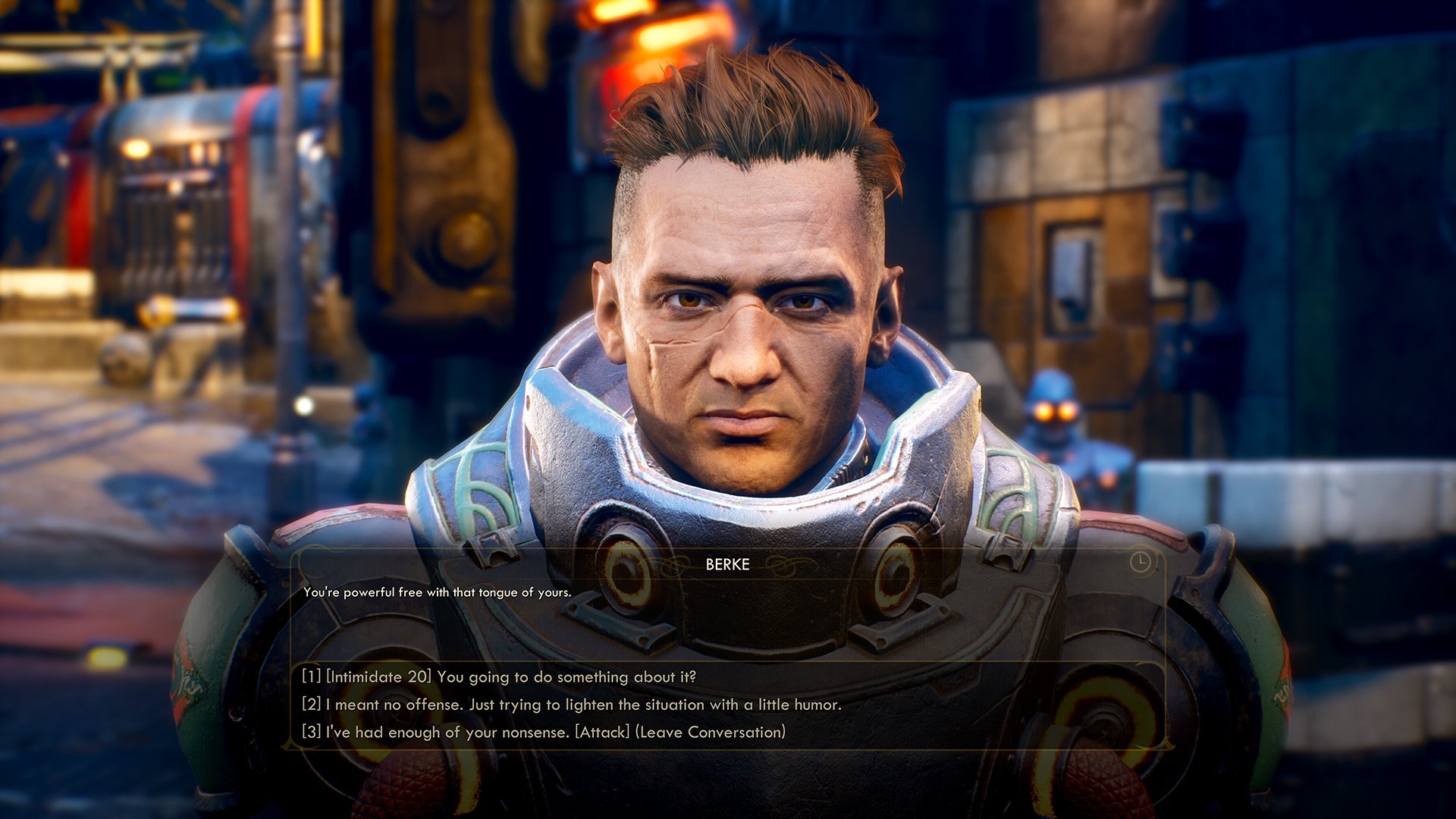
Adopting a traditional linear format allows for curation and guidance, both valuable tools in digital storytelling. However, The Outer Worlds aims to embrace an identity of branching gameplay while battling its hurdles to ensure a refined experience. Positioned among Obsidian's storytelling stars, McPhee details the challenges in assembling a compelling narrative for this fresh IP. "It's difficult, it's a lot of work," McPhee said. "At a very basic level, one of the things that we have to keep in the back of our mind when we're doing things like quests and NPCs is [that] you can kill anybody. If you have a quest-giver, we try very hard to not let the player shoot themselves in the foot. And killing a person is a choice."
The ambition is crafted quests that accommodate for player freedom while considering fail-safes, according to McPhee. Implementing these countermeasures has taken time, but avoids punishing those breaking away from norms. "We were doing play tests in the office, and one of my coworkers did one where she very specifically tried to break the game. She wanted to try really hard and she couldn't do it. That's just a result of constant iteration of work over the past couple years."
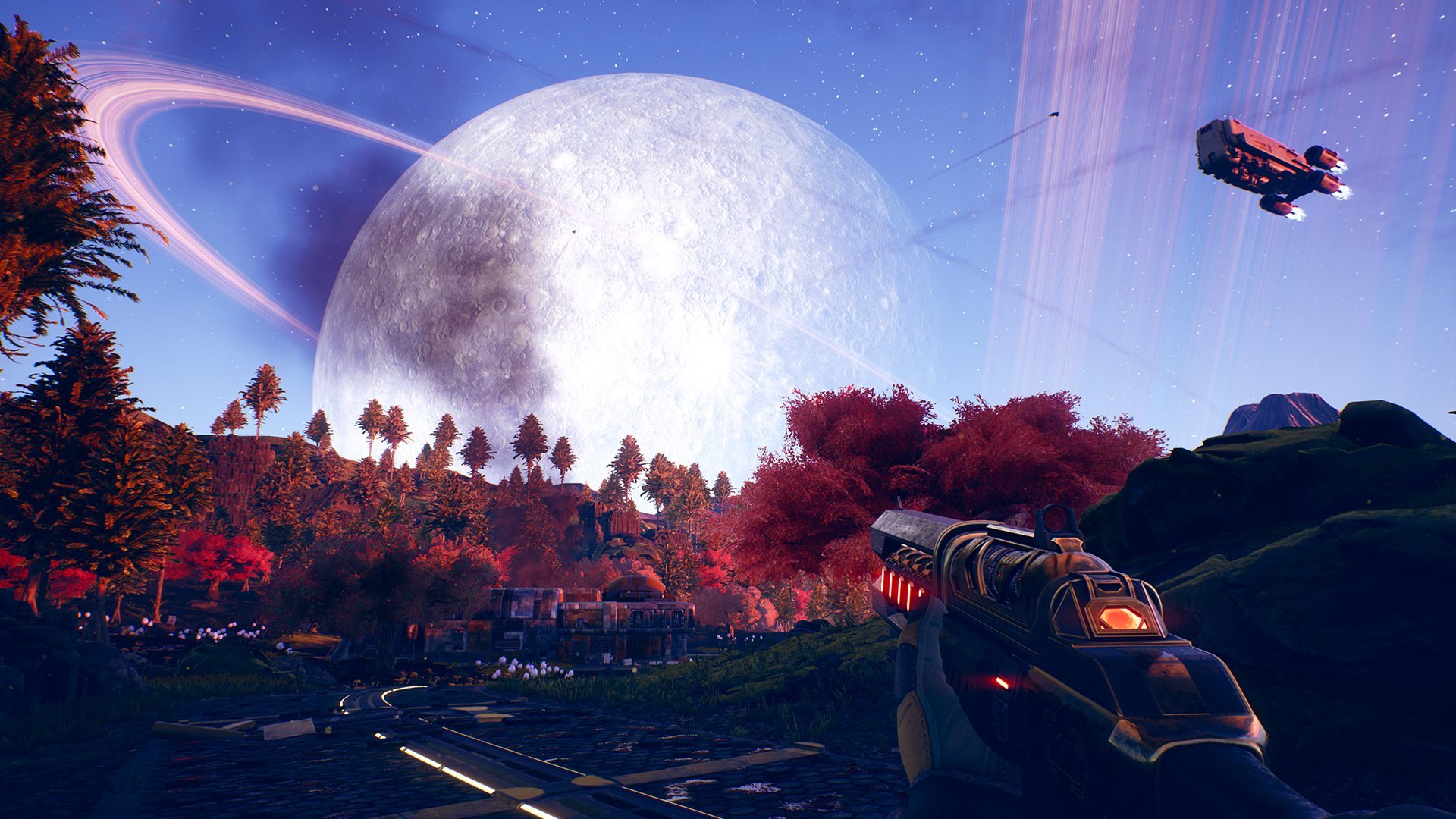
The Outer World's embrace of unhinged corporatism fosters a turbulent backdrop, pushing combat as a central pillar of its role-playing foundations. Its deep role-playing systems complement shooting and looting, leaning on familiar tropes to Bethesda's Fallout series. The Outer Worlds looks to cater to both shooter fans and role-playing purists, providing options to approach encounters with strategy or a real-time focus.
"There are other things like slow down with tactical time dilation," McPhee said, a dedicated ability to slow down time during combat. In clear inspiration from the turn-based V.A.T.S. targeting system of modern Fallout titles, the ability alleviates the granular, reactive gunplay, with an option of further upgrade paths too. "That actually helps a lot. Depending on the choices that you make during your character creation, customization, and all that stuff, you can potentially have that be very powerful."
The Microsoft family and Game Pass puzzle
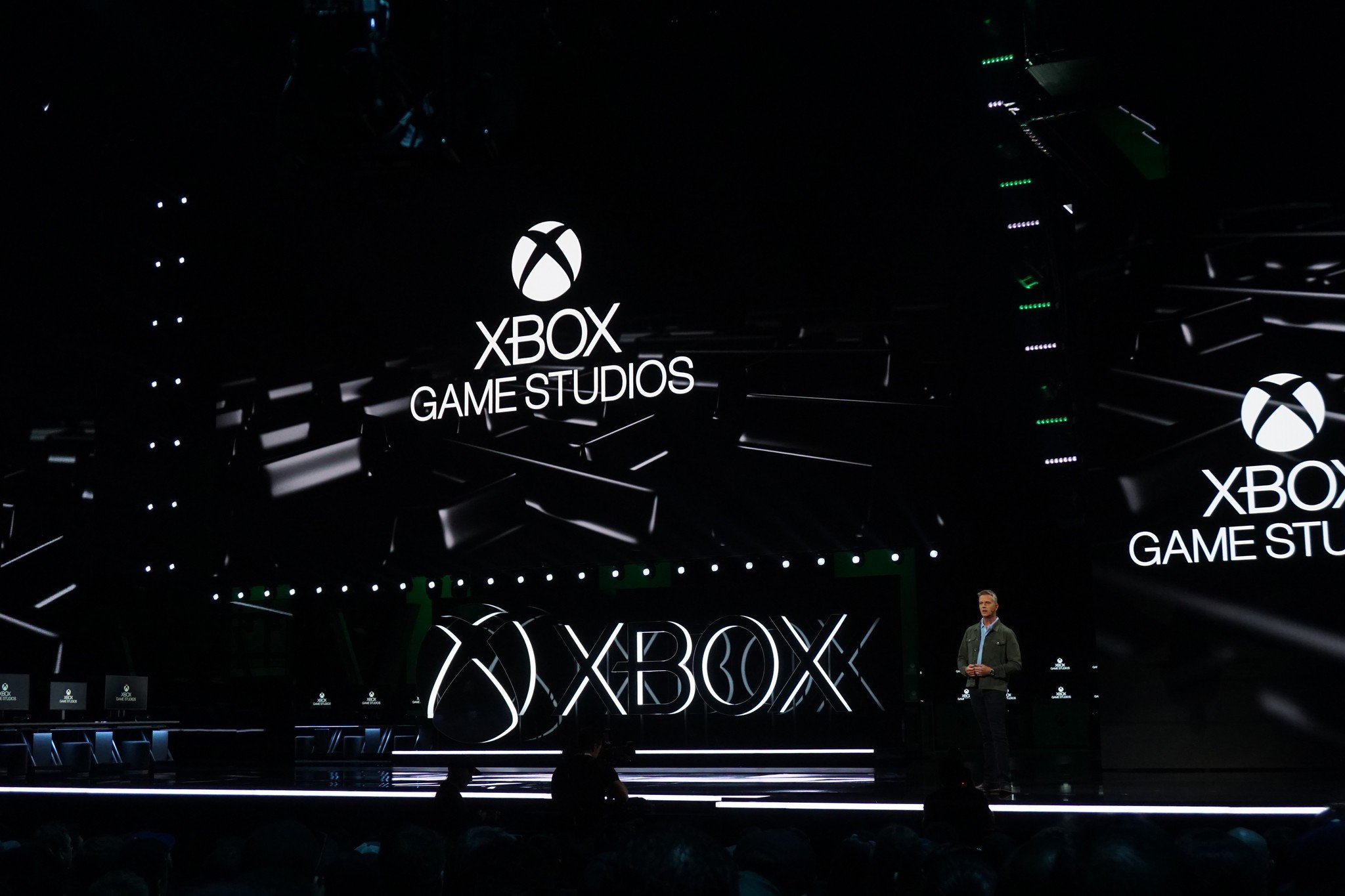
While already a proven role-playing heavyweight, Obsidian now falls among Microsoft's extensive list of recent acquisitions under the Xbox Game Studios family. Obsidian's 2018 onboarding further fortified in-house Xbox development, providing the studio with long-needed backing of an industry giant. "They've been great, honestly," said McPhee on the acquisition. "It's not something that directly affects this specific project, but just the general atmosphere has been awesome."
"The general atmosphere has been awesome"
Sided by over a dozen Xbox Game Studios development teams, the benefits of cross-studio resources and collaboration already bear fruit for the team. "It comes at the tail end of this project, but we're already talking, we catch up with the sister studios, talking about different techniques and learn from them and stuff like that." Fellow role-playing icons inXile Entertainment sit among those partners, currently committed to Wasteland 3 and Bard's Tale IV support.
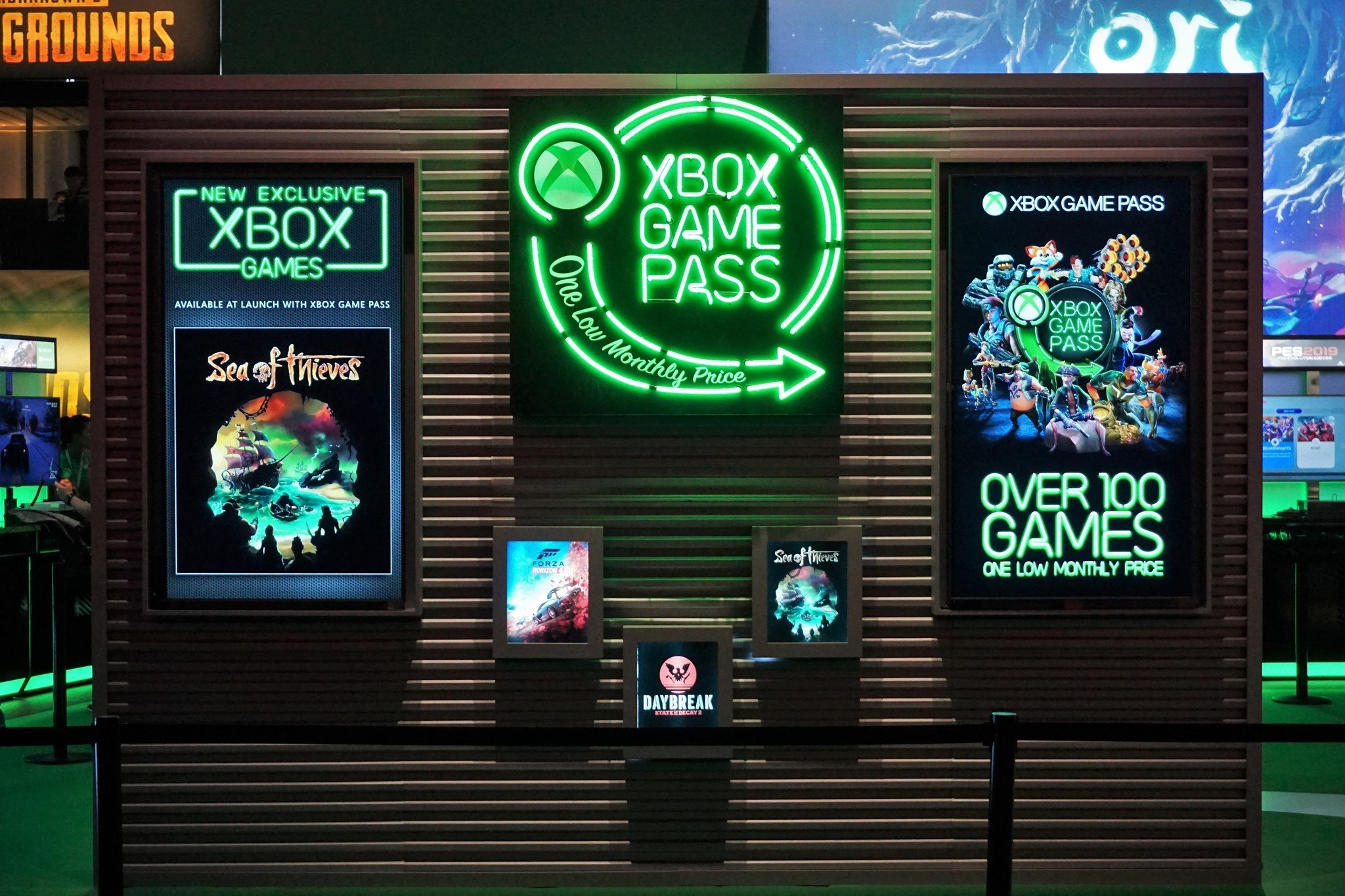
Over three years deep into The Outer Worlds, publishing rights remain with Take-Two label Private Division, despite Microsoft's recent acquisition. However, it will make the year's Xbox Game Pass blockbusters, expanding the growing Netflix-style subscription library in 2019. Established on Xbox One and now extending to Windows 10 PCs, Xbox Game Pass serves a roster of over 100 titles, alongside first-party games at launch. The Outer Worlds joins upon its October 25, 2019, release, granting access under the $10 monthly fee.
"I really like Game Pass, and one of the things I like about it is that I tend to try games I probably wouldn't try without it," McPhee said. "And I think a lot of people are going to do that." With day-one inclusion, McPhee emphasizes Xbox Game Pass will aid in drawing new players to its role-playing adventure. "We have a core audience for The Outer Worlds that's going to get the game. They're really excited about it. [...] but I think there are going to be a lot of people, especially on Game Pass, who just see it and go, 'Oh, that looks kind of interesting.' And maybe they wouldn't have bought it before, but now they're going to play."
With development set to wind down over the coming months, The Outer Worlds is slated for an October 25, 2019, release on Xbox One, PlayStation 4, and Windows PCs. The Outer Worlds preorders start at $60, while Xbox Game Pass on Xbox and PC serves up the game for $10 monthly, alongside over 100 accompanying titles.

It's gonna be either Underrail Expansion or Outer Worlds GOTY for me
Thank godMegan and Leonard in multiple intreview mentioned how a lone wolf playthough will be possible. I mean.. Sure, they can lie but why would them do this? This ain't Bethesda or Todd after all..
Ex: https://www.gamespot.com/articles/you-can-become-the-outer-worlds-villain-if-you-wan/1100-6467960/ and https://www.techradar.com/news/the-...y-away-from-its-fallout-roots-and-thats-great > ''or if you want to double-cross both of them and do a lone-wolf thing.''
Edit: Also they already mentioned that Kill Everything playthougth are possible , so that's already another ending by default.
More like Edgefire, let's build a town at the base of an active volcano, it'll be fun!
More like Edgefire, let's build a town at the base of an active volcano, it'll be fun!
Maybe there's gonna be quest that we need to stop the volcano from activing but instead we can actually active and fuck the entire city.








It's all downhill from here.One wonders how gravitiy works in that setting ....
More like Edgefire, let's build a town at the base of an active volcano, it'll be fun!















Thanks for reaching out.
When you pre-order The Outer Worlds from our Private Division store, you will be receiving an Epic Game store key. We hope this clarifies any confusion. Please let us know if you have any other questions or concerns.















HOW THE OUTER WORLDS BUILDS ON OBSIDIAN’S BRILLIANT HERITAGE

The Outer Worlds is one of this year’s most anticipated role playing games, for plenty of good reasons. There’s its unique setting, a galaxy that is run exclusively by corporations, as well as the freedom to choose the direction you want to take the story in, and being able to play however you like. Then there’s the fact it’s being created by Fallout: New Vegas and Pillars of Eternity creators, Obsidian Entertainment. Oh, and did we mention the Shrink Ray gun? It also has one of those.
At this year’s E3, we got the chance to have a chat with Dan McPhee, one of the narrative designers at Obsidian, to find out more about the game and what we can expect from this sci-fi adventure that’s blasting onto PlayStation 4, Xbox One, and PC on 25 October. Have a read of our chat below.
GAME: How would you describe The Outer Worlds?
Dan McPhee: It’s a single player RPG. If you’re familiar at all with any of Obsidian’s other titles, it’s going to put the same heavy emphasis on choice and consequence, on having a lot of options as to how you play and how the story unfolds. There are a lot of really cool characters and it’s a very unique setting. You’re going to meet a lot of people you wouldn’t be able to meet in the real world, because it’s a very different environment. It’s set in outer space on a colony on the edge of space, it’s the furthest one from Earth, and you’re utterly alone. So what happens there, stays there. And they have to solve their own problems.
GAME: One of the interesting things about The Outer Worlds is that everything is run by corporations, how did that idea come about?
Dan McPhee: Tim [Cain] and Leonard [Boyarsky] wanted to explore a setting that was unique from other sci-fi settings that they’d seen before. And one idea was to take an alternate look at our history with corporations were back in the early 1900s, when the trust funds were busted up and the big banks busted. And we kind of saw a fight back against heavy conglomerates and monopolies [at the time].
They said, ‘Well, what if that didn’t happen?’ The more they thought about that, and the more we kind of experimented with the different types of stories you can tell in that setting, the more compelling we found it. So they said, ’What if a corporation bought a space colony and everything there is run by this set of 10 super corporations that own many different sub-corporations, kind of like how we have in the real world.

GAME: One of the really cool things about the game, is the narrative choices you can make, the way you interact with characters, and how that can lead you down different paths. How do you approach making that all make sense in the game?
Dan McPhee: We start with a basic idea of what are the things that we want the player to be able to do? Say it’s a conversation. So what dialogue options do we want? We might start with the option where you’re nice to the guy, then here’s the one where your mean, here’s the sort of neutral one. And then from there, we kind of branch out into what are some options that are specific to this situation. Like, is this guy being a jerk? Maybe your responses are based off that, or we talked to other people who are play testing it around the office and we say, ‘Hey, was there anything you wanted to say here?’ Or they come to us and demand us to put in an option that they really wanted!
And then for things like quests, like when we put in different options for different play styles, a lot of it comes back to gameplay. What is the stealth player’s option? What is the combat player’s option? We want to make sure that no matter how you’re playing the game, we provide enough avenues for those styles to be compelling and fun. So a lot of that starts with those core things. And then we sort of branch out and we pepper in little things that you wouldn’t expect. Just some fun stuff for humour sometimes. We just swing for the fences with some of that stuff.
GAME: Have you put something in the game knowing that it will almost likely be never seen by someone?
Dan McPhee: I love that stuff. I love the little details like that. Yeah, [in The Outer Worlds], there’s one town where there’s a little group of people just drinking around a little fire. And I put in some interactions where if you steal their drinks, they’ll yell at you about it. No one’s ever going to do that. But the few people who do I think will find it really funny. I like that stuff. So I kind of try and pepper it in wherever I can.

GAME: Ha, that’s amazing! Now, Obsidian have a really rich history when it comes to role playing games. What sort of lessons you taken from those games and are bringing into The Outer Worlds?
Dan McPhee: We’re building on foundations that come from that core desire to give the player a way to tell their own story. For example, the player character is just dropped into this colony and you’re woken up on a colony ship. You can choose what you did in a past life. But it doesn’t have a huge ramification, you’re kind of like a blank slate. And that’s kind of one lesson that we learned from games where the more we try to define about the player character, the less you get to define.
So instead, we made the setting where this person is the only one with the freedom to do what they want. And that has allowed us to just provide all these different avenues for people to [get] the kind of story that they want. It’s less restricted than past games have been, as our games have been like, here’s the core story, you’re going to follow it no matter what, but there are some kind of side options to do. [For The Outer Worlds] we put much less emphasis on that core and more emphasis on the side stuff on the decisions you make while you’re following that.
GAME: In the gameplay demo, we saw the two companions who are in the game. How do they work and who is your favourite companion?
Dan McPhee: Okay, so for the first question, how they work is they automatically assist you in combat, you can kind of direct them if you want to. And you also have options to spend skills and stats to make them better instead of yourself. We have a number of players at the office actually who really enjoyed just beefing them up and giving them really powerful equipment so that they don’t have to do anything. You just sit back and let them wreck.
For your second question. I am admittedly biased because I wrote one of them. So she’s probably my favourite. I wrote, Nyoka the machine gun woman that you saw in the demo. Yeah, she was really fun.

GAME: Where did the inspiration for her come from?
Dan McPhee: So she was kind of a fun evolution of ideas. One of the things I like to do is try and imagine a world where gameplay and narrative hold hands and play nice. So when we were designing this monster planet, we were [thinking] what companions are we going to have? Where are we going to put them. And one thing that immediately stood out to me was, we’ve always wanted to do this combat oriented hunter archetype [and] it makes sense to just put them on this planet, because… you can ask her for help guiding you through the wilderness, and she’ll know all about the creatures and where to go and what to shoot and what to run from.
At first we imagined like maybe it would be funny if she were this very prim and proper, kind of like a Nigel Thornberry type. Like she really enjoys taking trophies and stuff. But there was in the back of my mind, there’s this sort of little bit of a dissonance because this planet is very rough around the edges. People here have been abandoned for a decade, they’re really struggling to survive. And so to have this person who’s very crusty, upper class… It could be funny, but it also didn’t quite jive with the general theme of the planet. So I was thinking about how to rough her up a little bit.
And then one day, one of our systems designers came into my office and said, ‘Hey, we’re rebalancing the companion weapons. Would you be cool with us giving her a machine gun instead of the rifle’ that she had at the time? I was like, well, it’s a little weird. It’s a little weird for a big game hunter to have a machine gun, but I’ll think about it. And then, for some reason, this very vivid image of this scene from the movie Predator popped into my head, where they’re standing in a line just mowing down the jungle. I was like, wow, that could be really funny. If she were more like a mercenary type. Like, she still loves camping and wilderness hiking, and she likes to explore. But she’s much less about trophy gathering.
So then I started running with that, and I started working on her backstory. And then I imagined for a person who’s grown up here, who’s been living here for so long, what has happened in her past to bring her to this place? And so you can sort of dig into some of the darker parts of her history as part of her companion quest there. You kind of get to discover [aspects of her past] if you spend enough time with her.

GAME: And finally if you could work for any of the corporations in the game, who would it be and why?
Dan McPhee: Hmm, probably Rizzo’s. You see a sign for Rizzo’s in the trailer and they’re the purveyors of wines, alcohols, and candies. So they might be pretty fun. They also had the most colourful scheme for their branding. I saw a lot of like purples and blues and stuff. They just seem like they’d be fun. If any of the corporations could be said to be fun, maybe it would be them!

My point is that I'd put all of them in the "good but flawed" category.I mean.. Kotor 2, Fallout New Vegas , Alpha Protocol, , etc all pretty good RPGs.I also think Deadfire is pretty good and has RPG great elements, i feel like every stats and skill has a purpose while playing but i don't dare say this here.



All games are flawed. It depends on the person whether he can overlook them. I know I can easily look past Alpha Protocol's and New Vegas's shortcomings.My point is that I'd put all of them in the "good but flawed" category.
I mean.. Kotor 2, Fallout New Vegas , Alpha Protocol, , etc all pretty good RPGs.I also think Deadfire is pretty good and has RPG great elements, i feel like every stats and skill has a purpose while playing but i don't dare say this here.



I disagree. The camera, controls, and combat are all pretty terrible. And unlike MotB and Storm of Zehir it doesn't have any redeeming factors.NWN2 OC [...] are different: they’re just bland.







